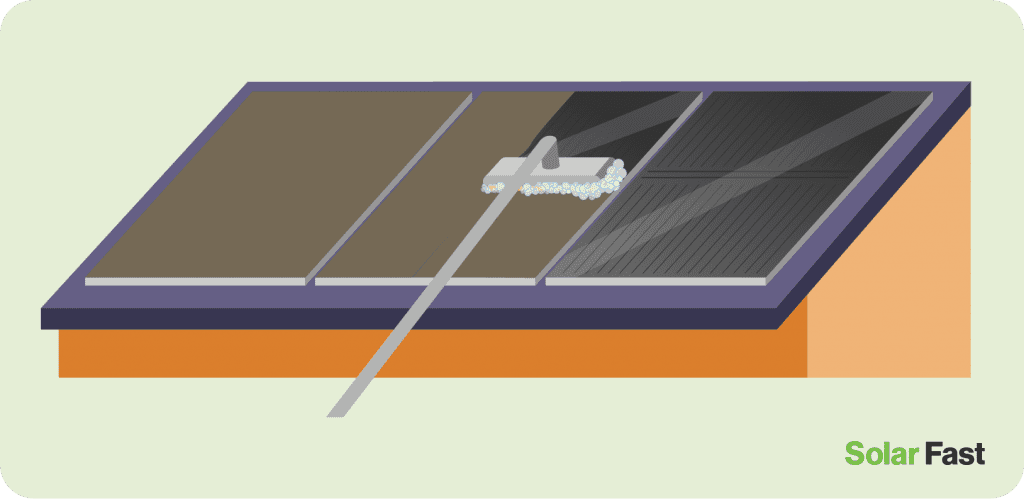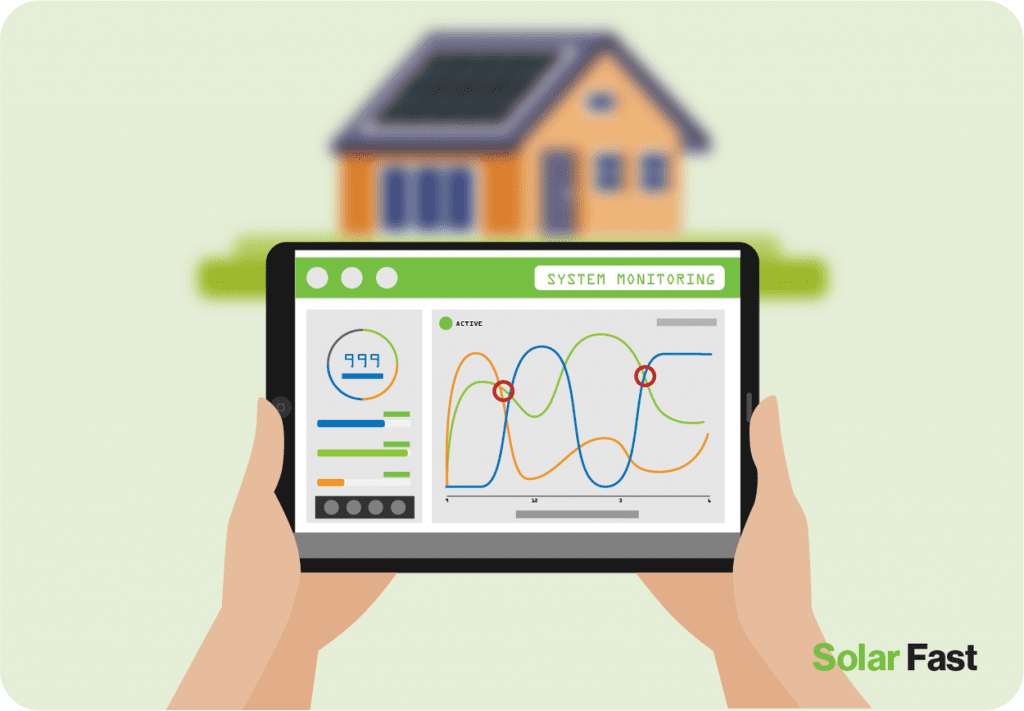Installing a solar power system in your home is a significant investment, and the solar panel array in that system will be there for nearly 3 decades.
Luckily, they don’t have any moving parts, so there is no need to get the spanners and WD40 out!
But you do need to ensure they are clean, undamaged and open to as much sunlight as possible.
How Often Should You Clean Solar Panels?
Most roof-based panels will self-clean when it rains as it is mostly dirt, dust and loose leaves that will cover the panels.
One quick downpour and they’ll be gleaming away again.
Plus, we wouldn’t encourage anyone to clean their own panels if they are roof mounted or positioned anywhere else dangerous.
If you are experiencing bird fowling, excessive tree sap or any other more stubborn stains we would suggest joining some kind of cleaning and maintenance scheme or hire a professional company.
They will be out to give your panels the once-over every 6 to 12 months depending on when your panels are and how much they are affected.

How are solar panels cleaned?
Carefully! That’s the main thing.
Anything that scratches, dints or damages a solar panel will affect its efficiency so, do not use scrubbing brushes, course cloths or wire wool.
Warm soapy water and a sponge should be enough to get anything off the panels.
Basically, you are cleaning glass, so bare that in mind. Every scratch decreases efficiency a tiny, tiny amount and, over 2 or 3 decades, those scratches could really build up.
So:
- Use a soft cloth
- Do not scrub
- Do not use abrasive cleaning products
- Do not use wire wool or scrubbing brushes
- Try just spraying the panels with water first
- Invest in a long-handled wiper so you can clean from the ground
- Use biodegradable soap
- Pay a professional to do it!
Getting the best from your Solar Panels
Not only do you need to ensure your panels are well maintained but they also need to be getting as much daylight as they were when they were installed.
So, here’s our Six Step guide to happy solar panels.
| Make sure your panels are free from shade | Add extra monitoring |
| Use your inverter as a monitor | Bird proofing |
| Keep a day to day check on levels of electricity | Check the panels are clean |
1. Make sure your panels are free from shade.
While panels don’t need direct sunlight to function, the amount of electricity you get from them will depend on those rays. So, keep an eye on trees growing near your home, or any new builds that may spring up, as well as other things that could block light to the panels.
2. Use your inverter as a monitor.
We recommend a daily check on your inverter to make sure all the lights are flashing green. If they are this means the panels are performing as they should and you are either using your electricity, sending it to the grid or storing it via a solar storage battery.
3. Keep a day to day check on levels of electricity.
Just make a quick note of your daily electricity production to ensure there is no drop off. You will get fluctuations on sunnier and cloudier days, but if there is a dramatic change this may indicate you have a problem with your panels.
Your manual will have an indication of how much electricity your panels should produce.

4. Add extra monitoring
Some companies can provide extra monitoring systems, such as a wall-mounted display. These generally change from manufacturer to manufacturer so you will have to choose one that provides the info you need.
5. Bird proofing
Bird damage can cause problems with your panels.
Birds, or even small rodents, can nest near panels causing all sorts of problems from direct damage to soiling. A simple net can usually prevent this.
Solar panel lifespan
When you get your panels installed on the roof, they are going to be there for a good long while.
Solar PV panels usually come with a 25/30 year performance guarantee and, if the company give you that you can bet they’ll last longer.
What that means is the panels will still be performing to 80% of their original efficiency after 2 and half decades.
To keep this level of performance for the whole of the panels life, you need to keep them clean.
Learn more about solar panel lifespan.
Get a solar monitoring app
The best way to keep an eye on the performance of your solar system is to make sure you are using a suitable monitoring app.
Most apps are exclusive to the kind of inverter you are using, but there are a few on the market that will control any system.
All the apps are different, but all should allow you to measure the efficiency of your panels.
This helps to pick up any faults might arise and will highlight shading, ‘hot spots’ and damage.
The data from the app will also give you a clue if your panels need cleaning.
Learn more about solar monitoring apps.







